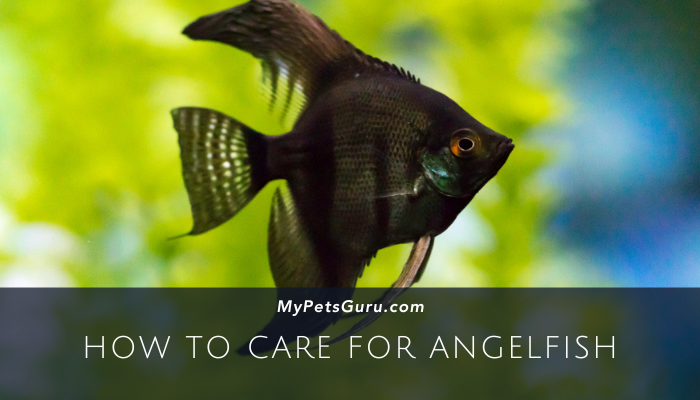Angelfish are beautiful and captivating freshwater fish that can bring life and color to any aquarium. With their graceful movements and vibrant patterns, they have become a popular choice among fish enthusiasts. However, caring for angelfish requires some specific knowledge and attention to detail. In this article, we will provide you with all the information you need to ensure the health and happiness of your angelfish.
Key Takeaways:
Before we dive into the details, let’s quickly summarize the key points of caring for angelfish:
- Choose a suitable tank size of at least 20 gallons for a pair of angelfish.
- Maintain a stable water temperature between 76°F and 82°F.
- Provide a well-balanced diet consisting of high-quality fish flakes and pellets.
- Ensure the water conditions are optimal by regularly testing and monitoring pH, ammonia, and nitrite levels.
- Create a peaceful and harmonious environment with proper tank decorations and hiding spots.
Now, let’s explore each aspect of caring for angelfish in more detail.
Tank Size and Environment
Angelfish are peaceful, but territorial fish that require enough space to swim without feeling cramped. A suitable tank size for a pair of angelfish is at least 20 gallons. However, if you plan on housing a community of angelfish, a larger tank of 30 gallons or more is recommended to accommodate their potential growth and aggression towards each other.
It’s important to create an environment that mimics the natural habitat of angelfish, which is typically slow-moving rivers and streams in South America. Decorate your tank with plants, rocks, and driftwood to provide hiding places and create a sense of security for your angelfish. Avoid sharp objects that could potentially harm their delicate fins.
Water Parameters
Maintaining optimal water conditions is crucial for the health of your angelfish. The temperature should be kept between 76°F and 82°F, as angelfish are tropical fish that thrive in warm waters. Use a reliable aquarium heater to regulate the temperature.
Regular water changes are essential to keep the water clean and free from harmful chemicals. Aim to change around 20% of the water every week. Test the water parameters regularly using an aquarium test kit to monitor levels of ammonia, nitrite, nitrate, and pH. Aim for a pH level around 6.5 to 7.5 and ensure ammonia and nitrite levels are undetectable.
Diet and Feeding
Angelfish are omnivorous, meaning they eat both plant matter and small invertebrates. To provide a well-balanced diet, feed your angelfish high-quality fish flakes or pellets that contain a mixture of protein, vitamins, and nutrients. You can also supplement their diet with live or frozen foods such as bloodworms, brine shrimp, and daphnia.
Feed your angelfish small amounts of food multiple times a day. This mimics their natural feeding behavior in the wild and prevents overeating. Remove any excess food within a few minutes to maintain water quality.
Tank Mates and Compatibility
When selecting tank mates for your angelfish, it’s important to consider their peaceful nature and potential territorial behavior. Avoid aggressive or fin-nipping fish that could harm your angelfish. Good tank mates for angelfish include peaceful community fish such as tetras, guppies, and corydoras catfish.
Remember to provide sufficient hiding places and visual barriers within the tank to reduce stress and prevent aggression among tank mates.
Common Health Issues
Like any living creature, angelfish can be susceptible to certain health issues. Keep an eye out for signs of common diseases such as ich, fin rot, and swim bladder disorder. These ailments can be caused by poor water quality, stress, or other environmental factors.
Maintaining optimal water parameters, a balanced diet, and a stress-free environment are key to preventing these diseases. If you notice any signs of illness, consult a veterinarian who specializes in fish health for proper diagnosis and treatment.
In Conclusion
Caring for angelfish can be a rewarding and enjoyable experience. By providing a suitable tank size, maintaining optimal water parameters, and offering a well-balanced diet, you can ensure the health and happiness of your angelfish. Remember to choose compatible tank mates and be vigilant about monitoring their overall well-being. With the right care, your angelfish will thrive and become the centerpiece of your aquarium. Happy fishkeeping!

Hi, I’m Lila Hart, and I’m just as fish-obsessed as they come! I’ve been enamored with aquatic life since I was a little kid. Now, I’m a marine biologist with over 3 years of hands-on experience in the world of pet fish.
I’ve learned the ropes of fishkeeping through trial and error, and I’m excited to share my knowledge with you. My mission is to help you create a thriving aquatic paradise for your finned companions. Together, we’ll explore the fascinating underwater world of pet fish!

